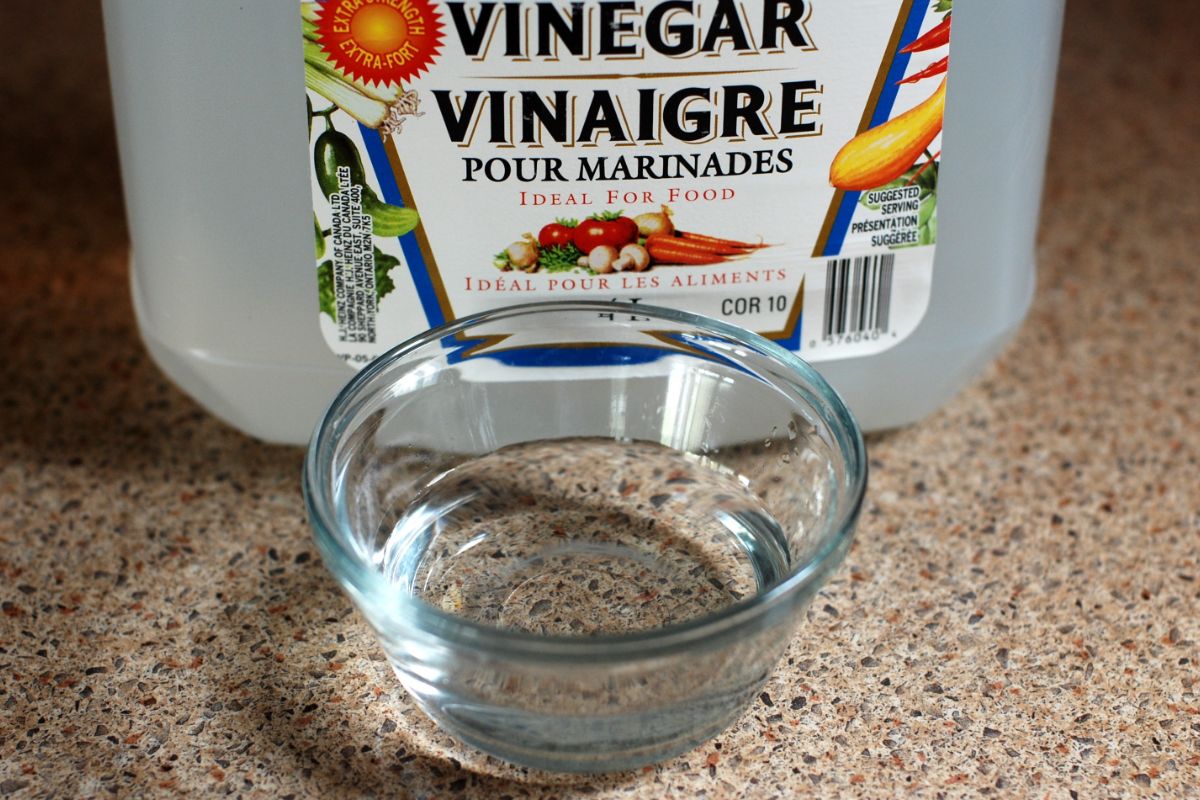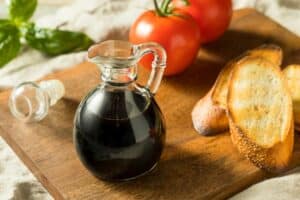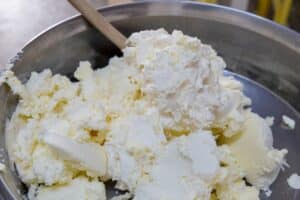Vinegar is a versatile liquid made from the fermentation of ethanol. It is commonly used in cooking and canning to add acidity and flavor to dishes.

But have you ever started cooking a recipe or decided to can some sliced onions, only to realize you’re out of vinegar? Don’t worry, you’re not alone!
It can be frustrating when you don’t have the ingredients you need, but luckily there are plenty of substitutes for vinegar that can still give you that tangy flavor you’re looking for.
In this article, we’ll be sharing the four best substitutes for vinegar in cooking and canning. Whether you’re making a salad dressing, pickling vegetables, or marinating meat, these substitutes will come in handy when you’re in a pinch.
If you’re out of vinegar, the best substitutes for cooking and canning food are lemon juice, lime juice, apple cider vinegar, and white wine.
So, don’t let a lack of vinegar hold you back in the kitchen. With these substitutes, you can still create delicious meals and preserve your favorite fruits and vegetables!
| Substitutes | Calories | Fat | Carb | Protein | Fiber | Ratio |
| Lemon juice | 8 | 0.1g | 2.6g | 0.1g | 0.1g | 1:1 |
| Lime juice | 8 | 0.1g | 2.6g | 0.1g | 0.2g | 1:1 |
| Apple cider vinegar | 3 | 0g | 0.1g | 0g | 0g | 1:1 |
| White wine vinegar | 5 | 0g | 0.1g | 0g | 0g | 1:1 |
What Does Vinegar Taste Like?
Vinegar is known for its sour and acidic taste, often described as sharp or tangy. This sour and acidic condiment is like a little flavor bomb that packs a punch.
It’s extremely sharp and might just make your mouth pucker if you’re not ready for it. But don’t be scared, because depending on the type of vinegar you’re using, it can also have a subtle sweetness or even a fruity vibe going on.
With acidity that ranges from mellow to wild, vinegar is a versatile flavor booster that can take any dish from ho-hum to oh yeah!
While vinegar is not a significant source of protein, carbs, or fat, it is low in calories and can be a good choice if you are looking to cut back on your calorie intake.
Moreover, some types of vinegar, such as apple cider vinegar, may contain other beneficial compounds, such as acetic acid, which has been linked to potential health benefits.
It’s worth noting, however, that not all vinegars are created equal, and some may contain added sugars or other ingredients that could impact their nutritional value, so when choosing a vinegar, it’s always a good idea to read the label and look for a product that is made with high-quality ingredients and minimal additives.
1. Lemon Juice
If you’re in the market for a tangy ingredient that can add a burst of flavor to your dishes and that is not vinegar, look no further than lemon juice!
This citrusy liquid is a popular substitute for vinegar in many recipes, and it’s easy to see why. Not only does it have a bright and fresh taste that can wake up your taste buds, but it also contains a range of nutrients that can benefit your health.
In addition to its nutritional value, lemon juice also contains compounds such as citric acid and vitamin C, which have been linked to potential health benefits, such as improved digestion and immune function.
2. Lime Juice
Another alternative to vinegar that can add a bright and zesty flavor to your cooking is lime juice.
This popular citrus fruit is a common ingredient in many dishes, from Mexican and Thai cuisine to cocktails and desserts.
Apart from its nutritional benefits, lime juice also contains compounds like vitamin C, which can boost your immune system and help your body absorb iron.
When using lime juice as a substitute for vinegar, keep in mind that it has a slightly different flavor profile than vinegar, with a more pronounced citrus taste, so you may need to adjust the amount of lime juice you use in a recipe to achieve the desired acidity level.
However, as a general rule, you can substitute lime juice for vinegar at a 1:1 ratio.
3. Apple Cider Vinegar
Made from fermented apple cider, this type of vinegar has a slightly sweet and tangy flavor that can add a unique depth of flavor to your dishes.
When it comes to nutritional value, apple cider vinegar has a similar profile to other types of vinegar, with the following breakdown per tablespoon:
Moreover, in addition to its nutritional benefits, apple cider vinegar has been linked to potential health benefits, such as improved digestion and blood sugar control.
4. White Wine
If you’re looking for a creative way to add acidity to your dishes when you’ve run out of vinegar, consider using white wine as a substitute for it.
This unexpected twist can bring a bright, complex flavor to your cooking that will leave your taste buds begging for more.
Nutritionally, white wine contains a small amount of carbohydrates, with around 2-3 grams per 5-ounce serving.
It’s also worth noting that, like all alcohol, white wine is high in calories and should be consumed in moderation.
Moreover, to use white wine as a substitute for vinegar, simply swap it in at a 1:1 ratio. Keep in mind that white wine can have a milder acidity than vinegar, so you may need to add a bit more of it to achieve the desired level of tartness.
Popular Recipes That Call For Vinegar
Here are some popular recipes that call for vinegar:
- Pickled vegetables: Whether you’re pickling cucumbers, beets, or carrots, vinegar is an essential ingredient for tangy and crisp pickled veggies.
- Coleslaw: The dressing for this classic side dish is typically made with vinegar, along with mayonnaise, sugar, and spices.
- Salad dressing: From vinaigrette to creamy dressings, vinegar is a staple ingredient in many types of salad dressings.
- BBQ sauce: Many BBQ sauce recipes call for a bit of vinegar to add tang and balance to the sweetness of the sauce.
- Sourdough bread: A small amount of vinegar can help to jumpstart the fermentation process and add flavor to sourdough bread.
These are just a few examples of the many ways that vinegar can be used in cooking and baking.
The Bottom Line
These four substitutes for vinegar – lemon juice, lime juice, apple cider vinegar, and white wine – offer unique and delicious flavors that can add a new twist to your cooking and canning.
Whether you’re experimenting with new recipes or just need a quick substitute when you run out of vinegar, these options are sure to satisfy.
So, next time you run out of vinegar, don’t worry; instead, go ahead and get creative in the kitchen, and enjoy the many possibilities of these flavorful alternatives!







